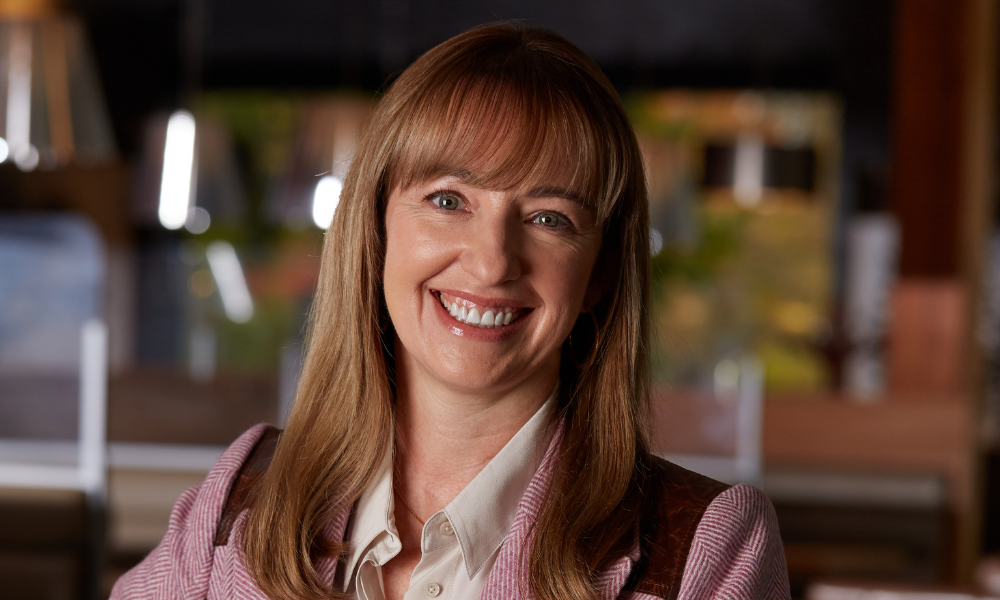
'It has been a real struggle for our industry and others with repeated lockdowns, and the unpredictable ability to schedule work'

For all that CHROs have to deal with these days — from COVID shutdowns to new flexible work arrangements — attracting and keeping talent is something that a lot of people leaders are also keeping top of mind.
“Our approach for workforce planning has really been to focus on our succession management, making sure that we’ve got a pipeline of talent and it’s strong; it’s continuing to grow and develop; and we focus on retention metrics of our top performers,” says Julie Denton, chief people officer at Recipe Unlimited in Vaughan, Ont.
“We actively measure our top performers to ensure that we’re retaining those folks and we’ve put an active focus on diversity, equity, inclusion, so ensuring that within that group of high performers, we’ve got the right mix of talents, to bring diversity of thought in and making sure that they have roles that are exciting and engaging on a regular basis.”
Denton will be part of the upcoming HRD Leaders Summit Canada, to be held on June 6 at Delta Hotels in Toronto, and she is part of the panel discussion, Creating impact through workforce planning. She spoke to HRD about some of the unique new challenges that her employer is facing.
The HR team at Recipe Unlimited — home to many restaurant brands such as Swiss Chalet, The Keg and St-Hubert — has had multiple setbacks over the past two years as the industry was often one of the first to be affected by public health mandates.
“It has been a real struggle for our industry and others with repeated lockdowns, and the unpredictable and inconsistent ability to schedule work and for many of our teammates that was a real challenge,” says Denton.
The industry in Canada is poised for a rebound in 2022, according to a recent report.
Educating employees on other aspects of the business in order to weather the COVID-related storms has helped them to keep operating, she says.
“A couple of our brands really focused on cross-training so that we have more flexibility brought into a restaurant; you didn’t necessarily have just one role that you could play because it became important to be able to have everyone cross-trained to keep the restaurant open.”
In order to increase stability in its workforce, the company is hoping to encourage workers that a career in hospitality is valid, says Denton.
“With regards to restaurant workers, historically it’s been a very flexible model, a lot of part-time work, some full-time [but] we’re really looking to shift that balance from part-time to full-time. We want people to see hospitality work and restaurant work as a career: there’s no better place to learn about customer service, no better place to learn about operations, those are all core business skills that we think really come out of being in restaurants.”
As well, investing in new technologies around scheduling will help in retention efforts for an industry that has long included flexible work hours.
“People want choice in their shifts, they want choice in days and when they work and how they work and so the scheduling software and the tools that we’re using now to allow more swapping of shifts and picking up different shifts, that can really put that flexibility back into the hands of the teammates and we are hoping is going to be a way to attract talent,” says Denton.
Earlier in the pandemic, Recipe Unlimited provided frontline workers with both financial support and more mental health resources.
For the office-based employees, flexibility is also the key to helping them be happier at work, she says by offering a “one fixed day, and one flexible day” model.
“One day a week is predictable and they’re in the same day every week and that helps them with their planning, it helps teammate to determine when they want to be in to collaborate with others. The flexible day is really at the discretion of a teammate and the business to decide when. If we’re having a town hall or a social event or a lunch-and-learn or training sessions, likely the second day that the individual will choose to be in.”
The company also recently launched a learning platform that now includes about 22,000 “learners.”
“The platform is a gamification platform that allows us to do micro-learning training segments with our teammates, every single day and so we encourage our teammates in multiple times in a week and in a month, to focus on everything from health and safety to diversity, equity, inclusion training, to safe knife handling skills, to guest satisfaction training,” says Denton.